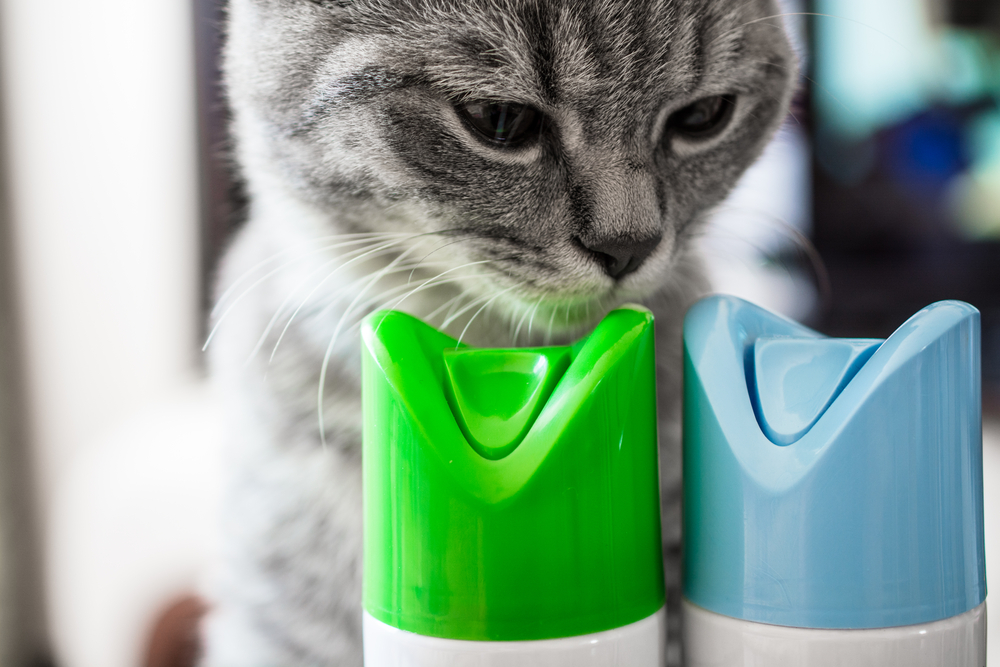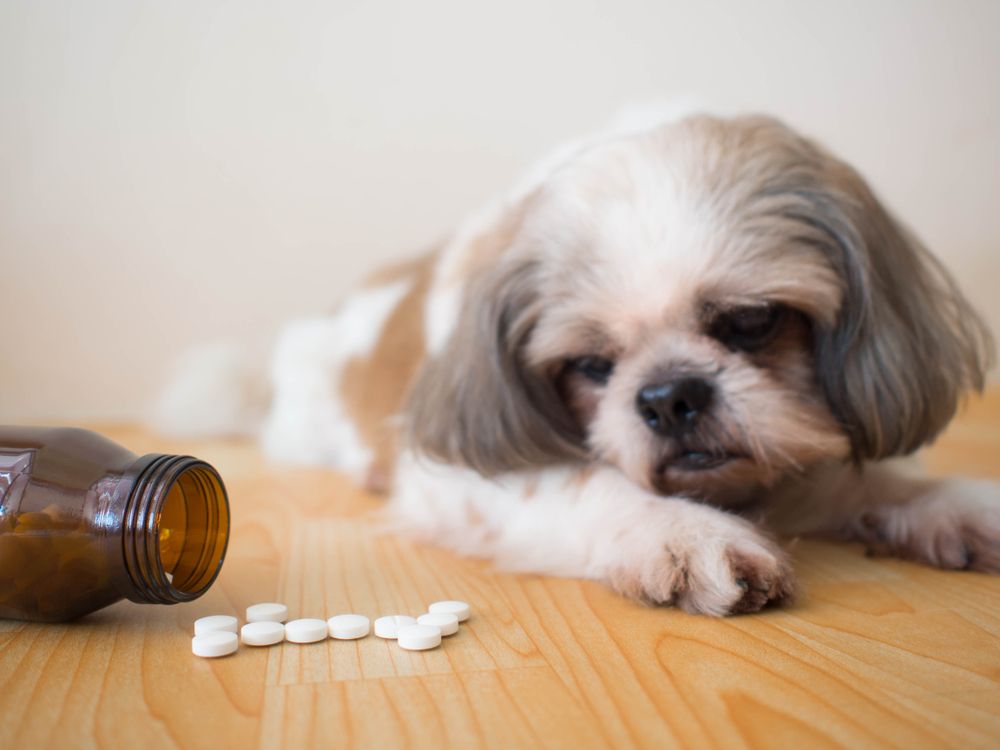Pet Poison Prevention Month is observed every March, but planning is key to preventing toxicity all year round. Curious cats and prying pooches stick their inquisitive noses into things they shouldn’t all too often. Prevent accidents from occurring by pet-proofing your home, garage, and garden and blocking access to these common poisons.
Home and garage poisons
Many hidden dangers may be lurking inside your home, cabinets, closets, and garage, and some may surprise you. Check out these common household toxins, and place them out of reach of curious pets.
- Human medications — Any drug has the ability to become a poison if it is used incorrectly. Your pet’s size and the quantity she has ingested will determine the severity of the effects of these common hazardous medications:
-
- Pain relievers, like acetaminophen, naproxen, and ibuprofen
- Antidepressants
- Stimulant medications, such as those used for ADHD
- Cold and allergy medications
- Vitamins and supplements
- Caffeine pills
- Cardiac medications
- Pet medications — Accidental overdose can easily occur if pet’s medications are left within paw’s reach. Often flavored to make dosing easier, your furry friend may search out these medications, thinking they are tasty treats. In addition to keeping your pet’s medications out of reach, be sure to keep human and pet medications separate, and avoid sharing medications between pets.
- Household cleaners — While it’s difficult to imagine a pet would be interested in sniffing out a caustic-smelling cleaner, accidents do happen. A bottle of bleach may be knocked over by a nosy pup, or your cat may scamper across a freshly mopped floor, and then groom her feet. When using chemicals, be sure to recap bottles tightly, place out of reach, and wipe up all residue to avoid contact with sensitive noses and paws.

- Tobacco products and alcohol — Cigarettes, chewing tobacco, e-cigarettes, and alcohol should always be placed out of reach of inquisitive pets.
- Foods — Even though many foods are safe for pets in small quantities, some may be highly toxic. Avoid sharing these foods with your pet:
-
- Chocolate
- Xylitol (a sugar substitute found in gum and other sugar-free sweets)
- Grapes and raisins
- Macadamia nuts
- Onions and garlic
- Fatty foods
- Uncooked bread dough
- Pest control products — Rodenticides are highly toxic, even if your pet indirectly consumes the poison by eating a dead mouse. Place all rodenticides, ant bait, wasp spray, spider traps, and other pest poisons safely out of reach of curious pets.
- Essential oils — While essential oils may have some beneficial effects for pets, undiluted forms can be highly toxic. Always speak with your veterinarian before using essential oils on or around your pet. If you use essential oils within your home, be sure your pet cannot reach the diffuser or bottles of oil.
- Antifreeze — Keep the garage neat and tidy, and be sure to clean up any chemical spills immediately. Keep an eye out for antifreeze, engine coolant, or oil leaks from your vehicle as well.
Yard and garden poisons
With spring quickly approaching, the race is on to cultivate a gorgeous garden and lawn. While you may love having your pets outside to enjoy the beautiful weather with you, many toxins can be found right in your backyard. Be wary of these common outdoor hazards:
- Fertilizers
- Lawn chemicals, such as weed-killers
- Mulch, especially the cocoa variety or heavily-oiled tree mulches
- Snail bait
- Some species of mushrooms
- Lilies
- Tulips
- Oleander
- Daffodils
- Azaleas
- Lilacs
- Chrysanthemums
- Sago palm
Signs of poisoning
Signs of poisoning can be vague, making it difficult to accurately identify an unknown toxin. If you think your pet may have been exposed to a toxin, provide as much information as possible regarding your pet’s habits and access to potential toxins so our veterinary team can make a quick and accurate diagnosis. Signs may be subtle at first and can even take days after a toxic encounter to show up, so prompt veterinary treatment is crucial for recovery. Signs of toxicity may include:
- Vomiting
- Diarrhea
- Muscle tremors
- Seizures
- Drooling
- Excessive thirst
- Excessive urination
- Ataxia, or walking unsteadily
- Pale gums
- Increased heart rate
- Lethargy
- Difficulty breathing
- Panting
Remember—prevention is key to protecting your pet from hazardous substances, but if you suspect contact with a toxin, do not delay. Timing is critical to remove the toxin from your pet’s system, and quick action will help save her life.
Worried your pet may have been exposed to a toxic substance? Call us immediately for assistance, or, if it’s after hours, contact the Pet Poison Helpline at 855-764-7661 or the ASPCA Animal Poison Control Center at 888-426-4435.







Leave A Comment